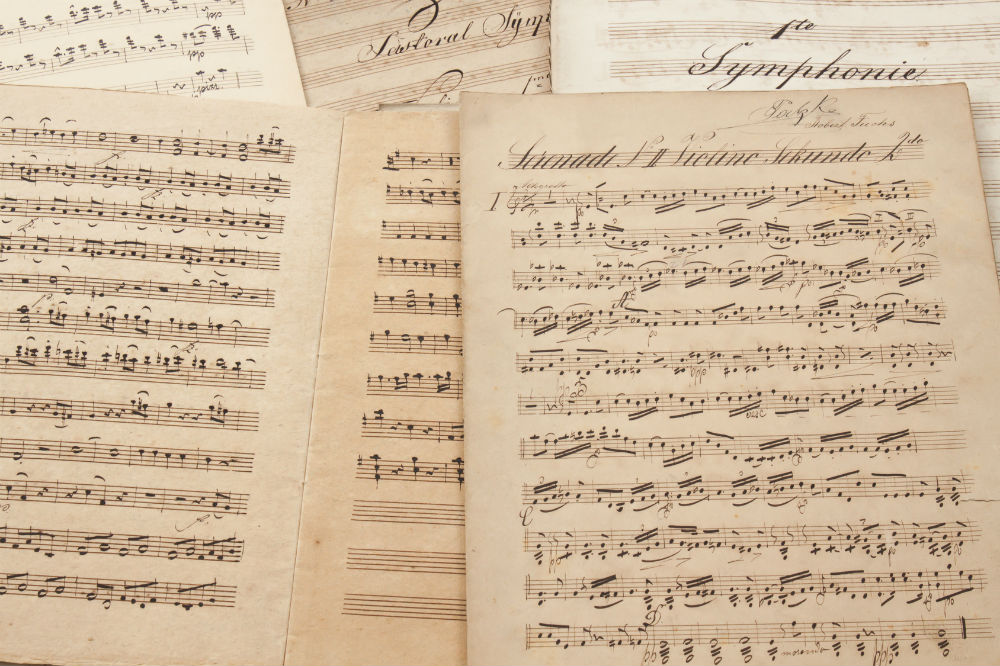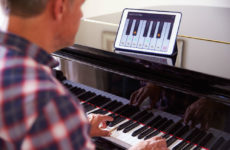
Learning how to read music for piano is one of the most dreaded prospects that young, aspiring pianists have to face. Sometimes, as a joke, a musician will show a piece of particularly complicated musical notation to a friend who’s just starting to learn how to read sheet music – just to laugh at their visible shock.
Don’t worry, though! The language of music is no more complicated than the language you are reading right now, but it is infinitely more beautiful. It may seem like a lot – a complex jumble of clefs, notes, staffs, breaks, bars – but rest assured, with a bit of dedication, you can definitely learn how to read music for piano.
What is sheet music?
Sheet music, or musical notation, is the written form of music – a pen and paper transcription of how read music for piano on paper. Musical notation exists so musicians can store, share, and edit musical scores they’ve composed.
Sheet music can seem very complicated, because it is. There are a lot of different symbols involved in musical notation – when peole say that music is a language, they are not using a metaphor.
There truly is a language written on these sheets, and understanding the more complex parts take years of work.
Fortunately, it doesn’t have to be complex at first. When you’re first introduced to sheet music, you’ll see how the pages are setup as a template for you to fill in with music.
- A blank piece of sheet music is really just a few lines, but these lines form the basic outline for the music to be written in. The composers will write down the time signature, the clef, arrange the notes, and ultimately draw together a melody, a percussion line (if necessary) and a bass line.
- Typically, several sets of sheets will be used, one for each accompaniment.
Writing a complex piece of music, like a symphony, can take years. The language of music can be very difficult to master.
Some musicians refuse to acknowledge or pursue music theory throughout their entire musical careers, being content teaching themselves how to play music by hand and memory.
Where can I learn how to read music for piano?
Most music lessons will provide an introduction to reading sheet music. Since sheet music can be so complicated and in-depth, there’s no need for basic piano instructors to teach their students how to read every form of sheet music.
Different degrees of instruction can be found at different establishments. It depends what you’re looking for.
- If you’re hoping to use basic sheet music so you can read simple songs, like the best hits from the 60s and 70s, and play them to yourself or for friends, you can probably learn this in some inexpensive personal lessons. Check out ads in your local classified section, or see if there are any community lessons available in your area.
- If you’re hoping to learn mid-range sheet music, so you can write and read more complex songs, you might have an interest in playing music for more than just yourself. This means that you should be looking for lessons that are a bit more serious than personal ones.
Consider taking an established music class. These might be available at a local music store, or available online. These classes generally provide a lot more information, and a wider perspective, allowing the user to develop a deep understanding of the concepts and theory involved.
- If you want to make music your career, and say, study music throughout history, or learn to play classical, complex symphonies of Bach and Beethoven, you’ll need to fully understand musical theory. You’ll need to go to university or a special music school to accomplish this.
In conclusion
Sheet music is a powerful and truly incredible method of written communication. Through a complex system of symbols – the letters of musical notation – that may look like hocus-pocus to the untrained eye musical notation allows us to transcribe the very essence of music and pass it down through the ages.
There are many nuances to learning how to read music, but with the proper instruction, the language can be learned without too much difficulty. Amateur musicians need not delve too deeply into learning musical notation right away.
Only veteran musicians, or those ultimately determined to become lifelong players of music, will ever need to know the intricacies of top-tier musical notation. Otherwise, if someone’s unsure as to whether or not they want to be a musician, they could waste hours studying sheet music only to find out afterwards that they don’t even enjoy playing their instrument.
Musical notation is beautiful, challenging, and integral to both the future of music, and preserving its past. Contribute to the wonderful world of music by starting to learn sheet music today, and you’ll be able to read and write as a real part of the magical realm of music.


